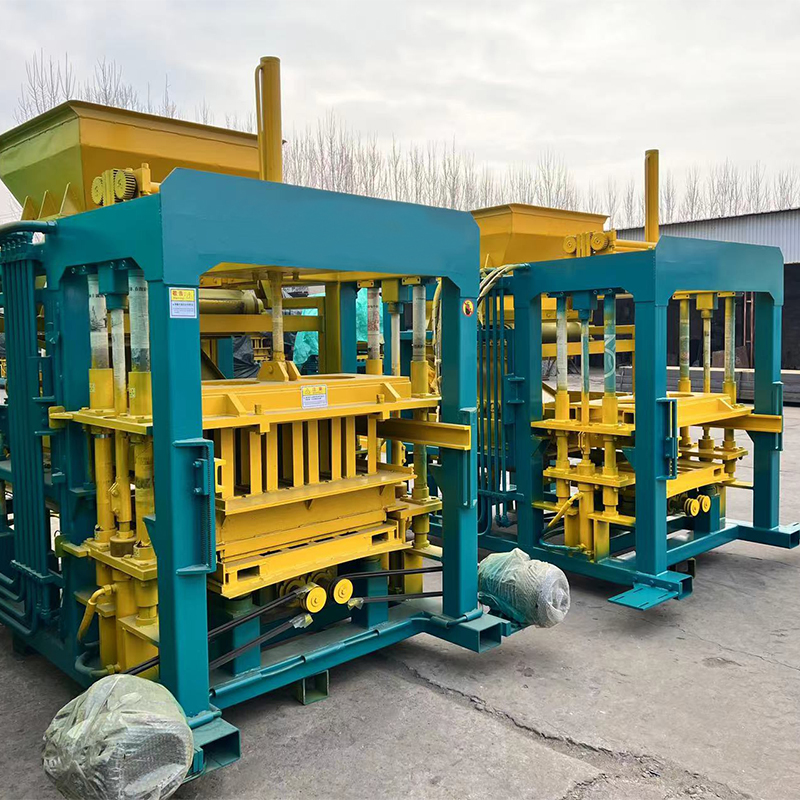
Image source Aiwei Block Machine
Introduction
Bricks and blocks are the basic units of construction, and the machinery used to produce them has come a long way from manual labor-intensive methods. As construction projects become larger and more complex, the demand for efficient and sustainable building materials has never been greater. Modern brick and block production machinery are addressing these challenges by incorporating cutting-edge technology, automation, and sustainable practices into the production process.
The Drive for Efficiency
Automated Brick and Block Making
Modern brick and block production machinery has embraced automation to streamline the manufacturing process. These machines are equipped with advanced control systems that manage every stage of production, from material preparation to the final product. Automation significantly reduces labor requirements and increases the speed and precision of brick and block production.
Hydraulic Presses and Precision
Hydraulic presses are a hallmark of modern brick and block production. These machines exert precise pressure to mold bricks and blocks to exact specifications. The level of precision they offer ensures consistency in size and shape, a crucial factor in construction. Hydraulic presses can produce a wide range of products, from standard bricks to specialized blocks for specific applications.
Sustainability in Brick and Block Production
Recycled Materials
Sustainability has become a central concern in construction, and brick and block production are no exception. Innovative machinery now allows for the incorporation of recycled materials into the manufacturing process. Crushed glass, plastic, and industrial byproducts can be blended into the raw materials, reducing waste and conserving natural resources.
Eco-Friendly Kilns
Traditional kilns used in brick and block production are known for their high energy consumption and greenhouse gas emissions. However, modern kilns have undergone significant improvements. Energy-efficient kilns use advanced insulation and heating technologies to reduce energy consumption, while some even harness renewable energy sources like solar power.
Digitalization and IoT Integration
Real-Time Monitoring
The integration of digital technologies and the Internet of Things (IoT) has revolutionized the way brick and block production machinery operates. Sensors and cameras installed on these machines continuously monitor various parameters, such as temperature, pressure, and production speed. Real-time data is transmitted to a central control system, allowing operators to identify and address issues promptly, minimizing downtime and optimizing production.
Predictive Maintenance
IoT-enabled machinery has predictive maintenance capabilities. By analyzing data and wear patterns, these machines can predict when maintenance is required. This proactive approach minimizes unexpected breakdowns, reducing production disruptions and repair costs.
Sustainability: The Key to a Greener Future
Sustainable Materials
Sustainability is not limited to the production process alone. Brick and block production machinery are playing a vital role in promoting sustainable building materials. The incorporation of recycled materials into the manufacturing process reduces the environmental impact of construction while conserving valuable resources.
Lower Energy Consumption
Energy-efficient kilns and production processes are crucial for reducing the carbon footprint of brick and block production. Lower energy consumption translates into reduced greenhouse gas emissions, contributing to a greener and more sustainable construction industry.
High-Performance Machinery
Modular Machinery
Modern brick and block production machinery offer greater flexibility through modular design. Manufacturers can configure these machines to produce various types of bricks and blocks by simply changing molds and settings. This adaptability reduces the need for multiple specialized machines, streamlining production and saving costs.
Quality Assurance
Ensuring the quality of bricks and blocks is paramount for construction safety and longevity. Advanced machinery is equipped with automated testing systems that use non-destructive testing methods, such as ultrasonic or X-ray scans, to identify defects and weaknesses in materials. Any subpar products can be removed from the production line before they reach the construction site, guaranteeing the structural integrity of buildings.
The Future of Brick and Block Production Machinery
The future of brick and block production machinery is bright and filled with potential. Innovations in automation, sustainability, digitalization, and high-performance machinery are shaping the industry’s direction. As the demand for sustainable building materials continues to grow, manufacturers are likely to invest more in research and development, resulting in even more advanced and eco-friendly machinery.
Conclusion
Efficiency and sustainability are two pillars of modern construction, and modern brick and block production machinery are at the forefront of this evolution. These machines are not only enhancing production efficiency but also driving the industry toward more sustainable and environmentally friendly practices. As the construction sector continues to grow and evolve, the innovations in brick and block production machinery will play a crucial role in building a more efficient, sustainable, and environmentally responsible future. Brick by brick and block by block, these machines are shaping the way we construct the world around us.
